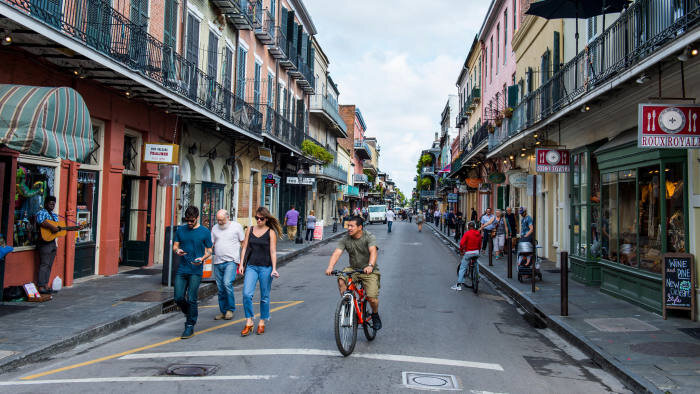
Latest News
#1 New Release
The Venture Alchemists becomes the #1 New Release on Amazon for both Venture Capital and Business Ethics
New Orleans Book Festival
The Venture Alchemist Debuts at New Orleans Book Festival 2024
The Venture Alchemists debuted in March 2024 at the New Orleans Book Festival. The mission of the New Orleans Book Festival at Tulane University is to support and nurture a literary community by connecting readers of all ages and backgrounds with local and national authors through experiences that celebrate the power of literacy and ideas.
New Orleans Advocate / Times-Picayune
New Orleans' startups were hot even before recent blockbuster deals, Tulane report finds
"It's a watershed time for the local startup ecosystem, and not only with Levelset and Lucid. More investment was coming into companies in the region before those events and that is a good sign as it means momentum was already building."
New Orleans Advocate / Times-Picayune
Benson Capital Partners, venture fund backed by Gayle Benson, to invest $53M
Rob Lalka, executive director of the Lepage Center for Entrepreneurship and Innovation at Tulane University, said Benson Capital would represent the largest early-stage venture capital fund in the New Orleans area.
Other News
Biz New Orleans
Tulane University’s A. B. Freeman School of Business released the second edition of the Greater New Orleans Startup Report, an annual comprehensive overview of the region’s entrepreneurial ecosystem. The report shows that startups with BIPOC founders face important differences in obtaining loans and investment funding and are less likely to have high revenue and profit margins compared with those founded by white entrepreneurs.
“Firms owned by BIPOC entrepreneurs are half as likely to receive debt financing via traditional bank loans as white-owned firms. They also receive angel investments less than half as often. From a business standpoint, we should be clear-eyed about these inequities,” said Rob Lalka, executive director at the Albert Lepage Center for Entrepreneurship and Innovation at the Freeman School. “All of us at the Lepage Center hope that the Greater New Orleans Startup Report will contribute to an important dialogue about our city’s future.”
Racial Inequities in Funding and Outcomes
A discussion of specific actions the New Orleans region can take to promote racial equity in our startup and early-stage small business community. Moderated by Rob Lalka, the panel includes Michael Hecht, President & CEO of Greater New Orleans Inc.; Quentin Messer, President & CEO of the New Orleans Business Alliance; Kelisha Garrett, Executive Director of the New Orleans Regional Black Chamber of Commerce; Otis Tucker, CEO of T.I. CONTRACTING LLC (doing business as Trucking Innovation); and Trivia Frazier, President & CEO of Obatala Sciences.
Financial Times
New Orleans, US — affordable start-up city with a jazz heart. The Big Easy is developing as a place where people come to do business as well as have fun.
The business formation rate is 64 per cent higher than the national average, according to The Data Center, which was set up to produce data about the region.
Most New Orleans start-ups are early stage, but a handful are growing with venture funding. Lucid, a market research technology business begun by entrepreneur Patrick Comer, who followed his New Orleans-born wife home after Katrina, has offices in Delhi and London and expects $40m revenues this year. Kickboard is an EdTech start-up founded by Jennifer Medbery, a former participant in Teach for America, a teaching scheme for college graduates.
WWL-TV
Minority owned businesses get less resources than their white counterparts, Tulane study shows.
A new report by the A.B. Freeman School of Business at Tulane University is shedding more light on the racial disparities among startup businesses in New Orleans.
This is the second year for the Greater New Orleans Startup report. Among its findings: White owned businesses are twice as likely to get traditional bank loans than those owned by Black and Indigenous people of color.
Rob Lalka said many factors can influence the success of a business, but he said it’s hard to deny the impact of race.
“I want New Orleans to be a great place to start a business no matter where you come from or who you are or what your skin color is,” Lalka said. “I think that’s something we have to come together and collectively try to make a difference on.”
Social Venturers
Back in 2015, Rob was still with Propeller in New Orleans and has since moved on to Tulane University where he heads up the Albert Lepage Center for Entrepreneurship and Innovation at Tulane’s Freeman School of Business.
“My role is to teach entrepreneurship to the next generation. I want students who come to study business at Tulane to have a world class experience; it’s my main priority. To me, that means reaching out to the business community to talk about emerging trends in innovation to keep our region competitive while also learning what it takes to make local job opportunities possible for our students. In that sense, the city and school are closely intertwined. My job is not just on campus, my work needs to serve the local community and be immersed in the community.”
Politico Magazine
The National Business Incubation Association has found that, after five years, incubated firms have a survival rate of 87 percent, as opposed to 44 percent in firms that had no such help. When networking, education, and financial resources are in low supply, incubators and accelerators provide would-be entrepreneurs with everything from no-cost workspaces and strategic workshops to mentorship and networking.
Even the best ideas can stumble if they’re not accompanied by a foundation of industry knowledge or experience—which is what incubators and accelerators aim to provide to a diverse range of causes from a diverse range of sources. Incubators and accelerators are increasingly recognized across the country as amplifiers of small-scale entrepreneurship and innovation. For example, Propeller now plays a crucial role in New Orleans, supporting projects ranging from barbershops to vegetable markets to coding boot-camps.













